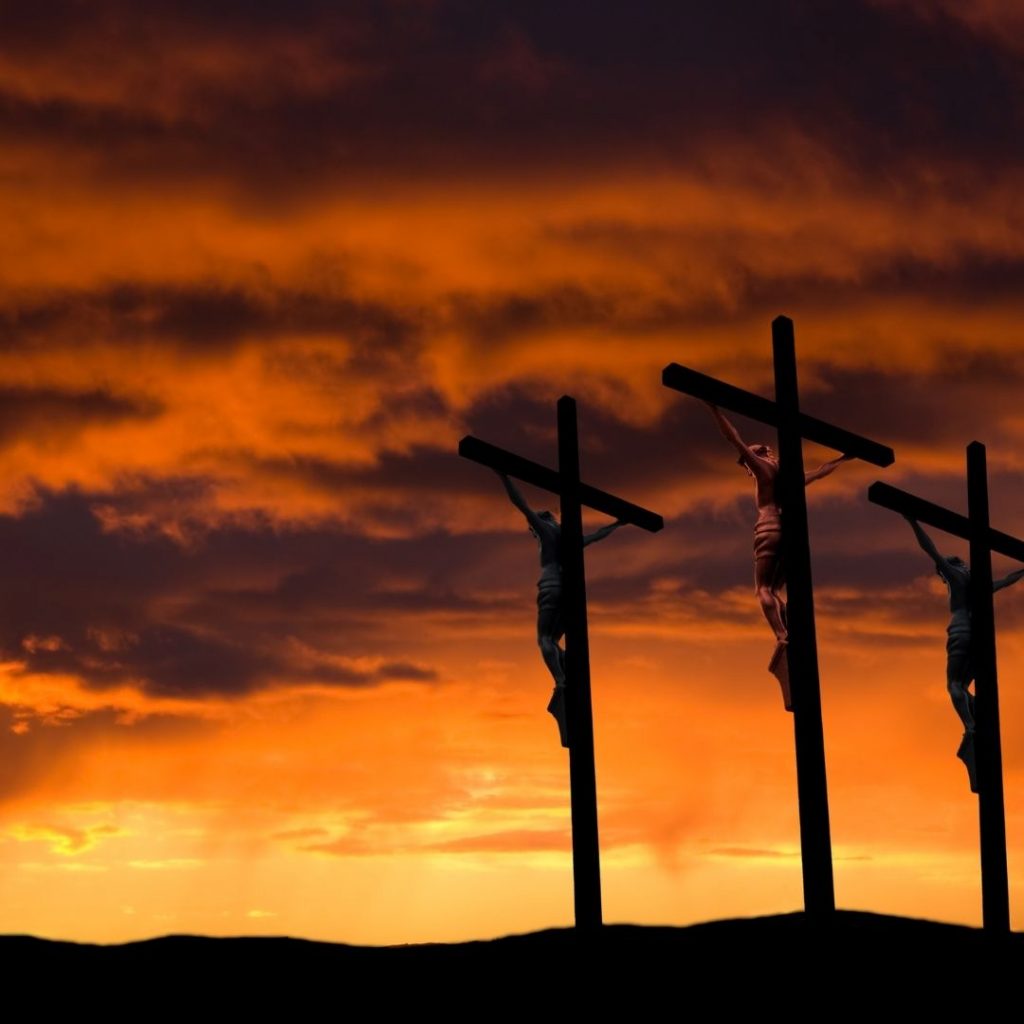“Two revolutionaries were crucified with him, one on his right and one on his left.” Mark 15:27

by Travis Michael Fleming, Apollos Watered
There are mysteries in our world that most of us struggle to understand. There are events that stick in our minds because of their significance. Rarely do these mysteries and events come together, but they do in the crucifixion of Jesus. This event is a mystery that astounds philosophers, provokes unbelievers, silences doubters, and awakens a sense of awe, invoking a holy hush across creation.

Good Friday was the holiest of days. God in flesh reconciling a sinful world to himself is beyond unfathomable. That Jesus—the Son of God, Creator, Sustainer, and eternal Word, the purest of the pure, the second Adam, in whom is the fullness of Deity—could be crucified by his sinful creation extends past the limits of our finite reasoning.
The night had been exhausting. After observing the Passover Seder with his disciples in the upper room, he went with them to Gethsemane (Matthew 26:36-56). There he poured out his heart to his Father in prayer as his disciples slept. But their brief respite gave way to anger and fear as Judas arrived with an armed mob to arrest Jesus and take him away. The disciples all fled, leaving Jesus utterly alone. Perhaps no one was hurting more than the bold and zealous Peter, who just a few hours before had pledged that he would die with Jesus (Matthew 26:31-35). But overzealous declarations in peacetime all too often flee in the face of conflict. Fear and self-preservation rear their heads. What could make Peter deny Jesus? An angry mob? The Pharisees and Sadducees? No, a simple servant girl’s question was all that was needed (Matthew 26:69-75).

Betrayed and abandoned, all four Gospels record the events of Jesus’ trial and crucifixion (Matthew 26-27, Mark 14-15, Luke 22-23, John 18-19). Jesus endured the kangaroo courts of the religious and secular leaders of the day: Caiaphas, the Sanhedrin (the religious ruling body), Annas, Pilate, Herod, and Pilate again, all acted as the judges and juries against God’s Son. No charges could be proven. Only false witnesses and the call for death by crowds spurred on by cruel jealousy and sanctimonious hypocrisy. The guilt of the crowds is seen most clearly in their call to free the rebel Barabbas instead of Jesus. Barabbas was an unrighteous man whose life was spared as a reward for others’ hypocrisy. Jesus was the righteous man who would give his life as a ransom for many.
Jesus was tried and convicted. He was then flogged—a cruel and horrific punishment that often proved fatal. The condemned was tied to a post and beaten with a leather whip, which was interwoven with pieces of bone and metal designed to tear into the skin and tissue, often revealing bones and intestines.

After the flogging, the soldiers wanted to have one last bit of fun. They gathered the whole battalion before Jesus, stripped him and put a scarlet robe on him. But their mockery was not yet complete. They twisted together a crown of thorns and placed it on his head and placed a reed in his right hand as a staff. In mockery and in jest they knelt before him as they would a Caesar, saying, “Hail, King of the Jews!” (Matthew 27:29). Then they spit on him, took the reed from his hand and struck him on the head with it. Their game over, they stripped him of the robe and put his own clothes back on him and led him away to be crucified.
Jesus made his way to Golgotha, barely able to walk, exhausted, beaten, and in great pain. When he could no longer carry the cross, Simon of Cyrene was drafted to carry it for him. Finally, they crucified him between two thieves.
Jesus’ suffering and humiliation was immense. Stripped naked and crucified as an enemy of Rome, his degradation was not yet complete. Pilate placed a sign written in Greek, Latin and Hebrew above His head: THIS IS THE KING OF THE JEWS. There was to be no mistake—Jesus was a king. And although the declaration was motivated by sinful mockery, it would prove to be an ironic sign of majestic and divine victory.

Jesus was and is the King. He died that Good Friday in order to provide us with redemption. We all deserve the wrath of God, but Jesus took God’s wrath upon himself. He endured the shame and humiliation for us. Through the mystery of Jesus’ death on the cross, God reconciled us to himself.
According to Scripture, we are spiritual criminals, enemies of God (Romans 5:8). The position Jesus took between two thieves should have been ours. But that holy day, the guiltless took the place of the guilty in order to pay the price our sins required.
There is a mysterious and almost surreal freedom that comes with the cross, but freedom does come. He paid the price that was beyond our ability to pay. He did not do it begrudgingly. He was not coerced or in any way forced. He did it freely and willingly so that we might be spared God’s wrath and have an eternal relationship with him.
On this good Friday, pause, reflect on what Jesus did for us. Confess any known sin to him. Freely embrace the forgiveness that is yours because of what Jesus did. Then marvel and praise him for the freedom, joy, and peace that is now yours because of the mystery of that wonderful cross.

Travis Michael Fleming is Founder and Executive Director of Apollos Watered, a ministry dedicated to helping believer of Jesus Christ to love and live like him in our global village. As the voice of Apollos Watered, Travis hosts a weekly podcast with listeners across the United States and in 50 countries. The podcast features conversations with Christian leaders as well as teaching that helps Christians around world to engage their cultures and learn from one another how to live out their faith Travis grew up in the farmlands of east central Illinois and has been a pastor for over 20 years from the urban center of Chicago to the north shore of Massachusetts and back to the suburbs of Chicagoland. Under his leadership each church grew in spiritual depth and diversity. Now living in Jacksonville, Florida with his wife and four children, Travis is a gifted speaker, frequently addressing churches, Christian camps, and conferences around the world. He boldly combines the deep truths of Scripture with a winsome, energetic and often entertaining style.


